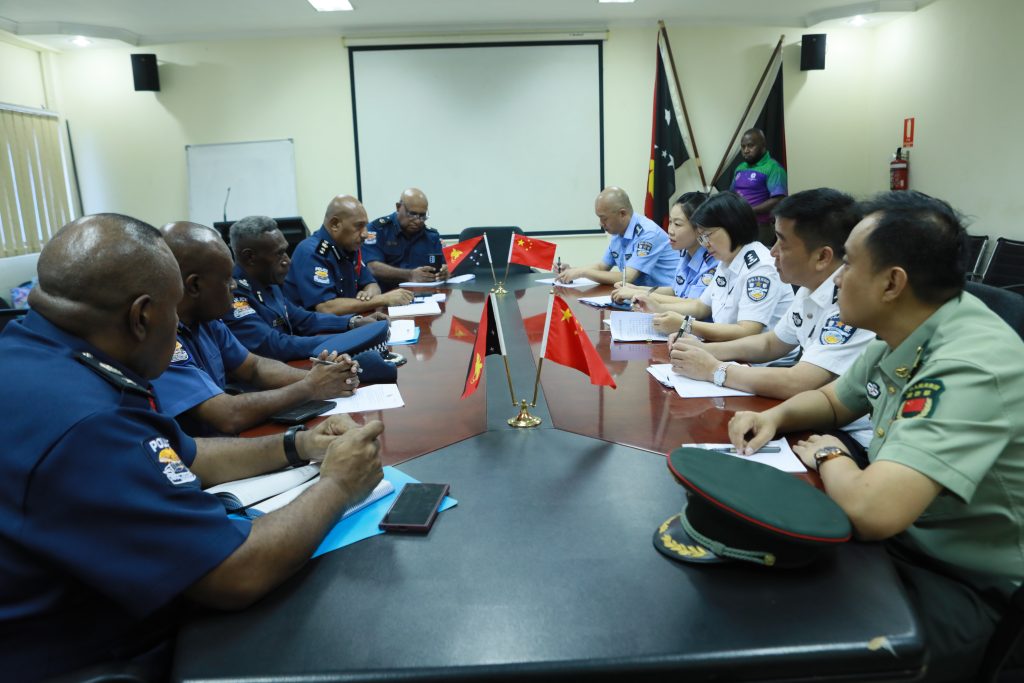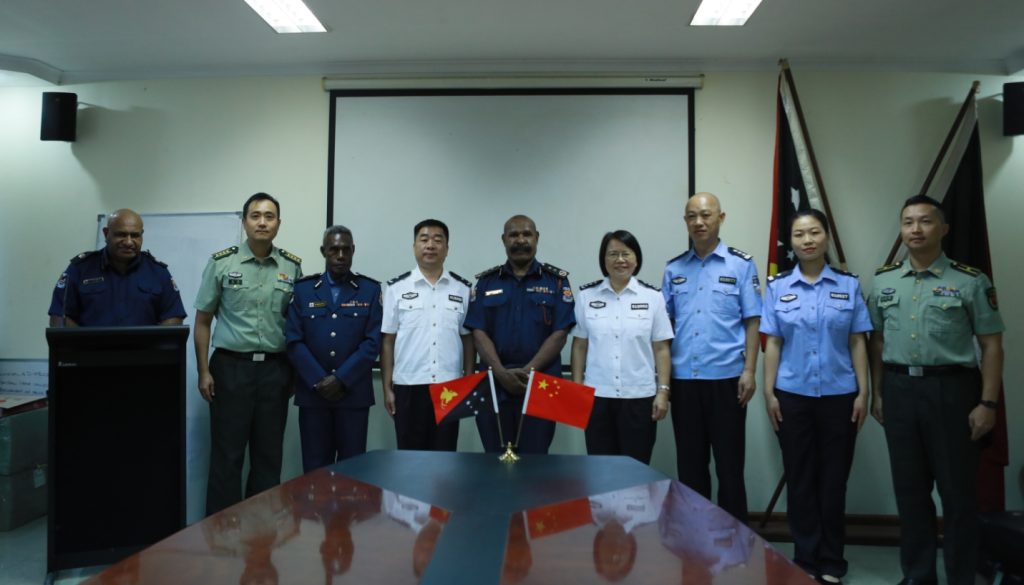On June 20, 2025, the China-Pacific Police Training Center delegation held a high-level police cooperation meeting with the Royal Papua New Guinea Constabulary (RPNGC) in Port Moresby.
The two sides reached broad consensus on enhancing law enforcement capacity training and promoting police technology exchanges, marking a new phase of institutionalized and regularized cooperation between China and Papua New Guinea in the field of policing.
At the invitation of the RPNGC, the delegation from the China-Pacific Police Training Center visited the RPNGC Headquarters in Konedobu. The delegation was led by Hu Baozhen, Director of the China-Pacific Police Training Center and President of Fujian Police College.
At 9:00 a.m., a welcoming ceremony was held at the headquarters. Deputy Commissioner Yamasombi, along with three Assistant Commissioners in charge of criminal investigations, human resources, and intelligence, held talks with the Chinese delegation. The two sides engaged in in-depth discussions on topics including law enforcement exchanges, counter-terrorism cooperation, drug control, personnel training, and policing mechanism development. A gift exchange ceremony followed, with a warm and friendly atmosphere throughout.
During the meeting, President Hu Baozhen introduced that Fujian Police College, as the implementing institution of the China-Pacific Island Countries Police Training Center (CPPTC), has trained 362 police officers from seven South Pacific countries. The training covered 11 areas including community policing, criminal investigations, counter-terrorism operations, and cybersecurity.
The PNG side highly praised the training outcomes, noting that “China’s experience is of great value in advancing PNG’s law enforcement modernization,” and expressed interest in launching specialized cooperation in key areas such as maritime law enforcement and combating illegal fishing.

Many Chinese entrepreneurs operating in PNG originate from Fujian Province, fostering close cultural and economic ties between the two regions. President Hu stated that Fujian Police College will tailor training programs for PNG police officers based on local realities, using a “classroom instruction + field visits” model to comprehensively showcase China’s policing system.
To consolidate and expand the outcomes of the cooperation, both sides agreed to expedite the signing of the Memorandum of Understanding on China–PNG Police Cooperation, thereby establishing a regular training mechanism. The PNG side also stated it would actively nominate officers to participate in various training programs in China.
In the afternoon, the delegation, escorted by PNG traffic police and the National Criminal Intelligence Unit (NCIU), visited the PNG Police College and K9 Training Base in the Bomana area.
President Hu held talks with Bomana Police College Principal Sika and expressed high appreciation for the institution’s training system and professional development framework. The two sides explored future cooperation in areas such as faculty training and curriculum development. The heads of the college and K9 unit accompanied the delegation during the facility tour and provided detailed briefings.
At the conclusion of the visit, PNG police representatives presented commemorative gifts to the Chinese delegation, symbolizing the deepening friendship and cooperation between the two police forces.
Senior Colonel Jiang Tuan, Defense Attaché at the Chinese Embassy in PNG in charge of police cooperation, stated that China and PNG are comprehensive strategic partners, and close police cooperation is an integral part of that relationship.
This visit marked the first high-level Chinese police delegation to PNG since the pandemic, reflecting both sides’ strong will to enhance cooperation. He added that the two countries have already made significant progress in areas such as drug control and personnel training, and will work swiftly to implement the outcomes of this visit.


